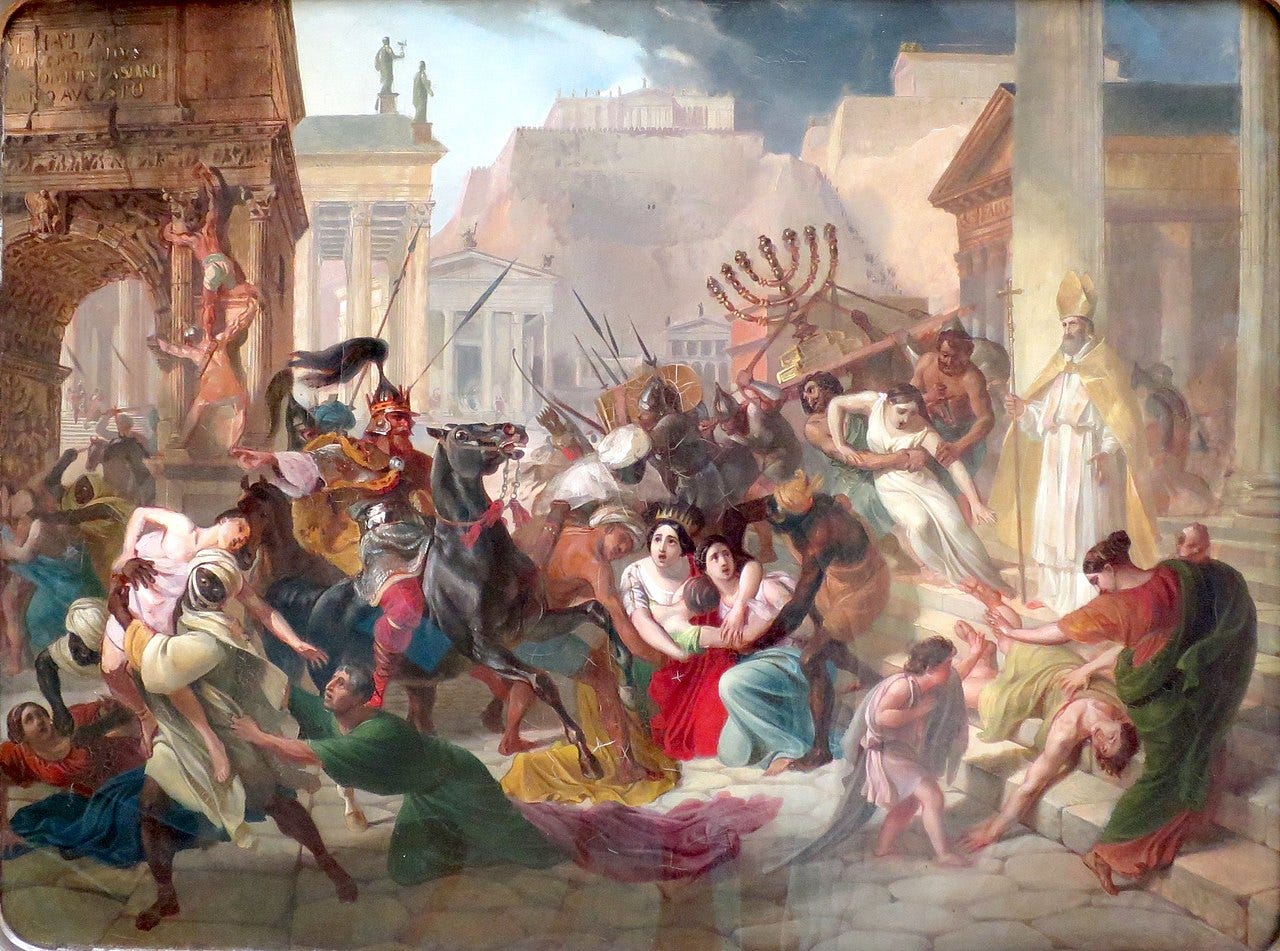Debunking The Myth of Social Decline
Understanding Perceptions of Moral Decay i.e. Why The Sky is Always Falling
Every generation has a myth of social decline: that there is a moral rot growing in society.
The Old Testament prophets (8th to 5th centuries BC) warned of societal collapse in Israel and Judah due to a departure from faith and righteousness.
In Aristotle’s 'Politics' (350 BC) and Plato’s 'Republic' (380 BC), both philosophers lament a Greek society slipping towards tyranny.
Livy’s 'Ab Urbe Condita' (27 to 9 BC) and Cicero’s 'De Republica' (54 to 51 BC) mourn the moral decline of the Roman Republic.
Sacking of Rome, 1833-1836, by Karl Bryullov
More examples include the apocalyptic Norse prophecies of Ragnarök (8th to 11th centuries AD), the Chinese dynastic cycles and the Mandate of Heaven (1050 BC to 1900 AD), and the Aztec myth of the Five Suns (1325 AD to 1521 AD). The latter arguably played out as foretold when the Aztecs mistook the Spanish conquistadors for the return of Quetzalcoatl. Evangelical Protestants speak of the Antichrist's return, Armageddon, and the Rapture.
Today, the myth is read in the tea leaves of rising geopolitical conflict and the changing world order, widening income inequality, political polarization, the technological upheavals of AI or climate change.
Every generation mistakes a world in perpetual transformation for the myth of social decline. Every generation reliably believes a changing societal moral landscape is unique to their epoch and that, to quote what Sir John Templeton calls the four most dangerous words, “this time it’s different.”
It's important to understand that the world you were born into is not the same world you live in now, and your children will not live in the same world in which you raised them. If you don’t understand this, it can feel as though the sky is perpetually falling.
Ray Dalio puts it bluntly: “he who lives by the crystal ball will eat shattered glass.”
The future is unknowable, and it's uncomfortable to realize that there are no guaranteed future rewards.
Since the future is unknowable there is always uncertainty.
Without certainty, it can feel as if the apocalypse is always upon us.
But actually no, it’s not different this time.


This reminds me of the pastime of complaining about the youth. Each emerging generation is lazy, entitled, selfish. The players change, but the rules remain--older generations are certain that what wasn't true for them is true today. Rinse and repeat. It's important to take a step back and laugh at the absurdity of these cycles.